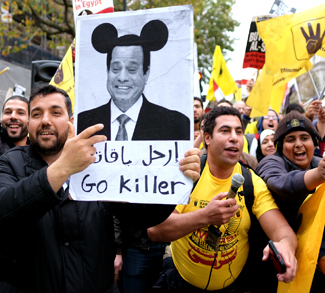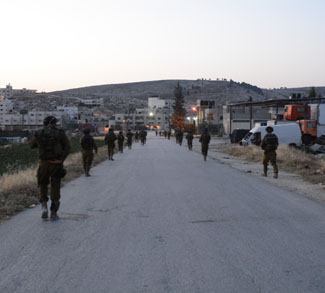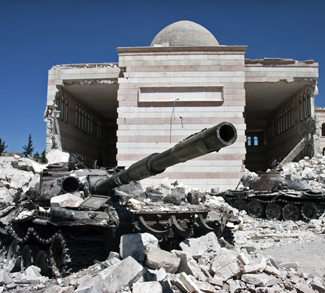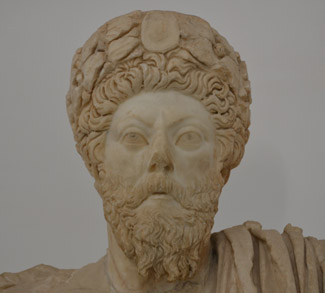The Italian researcher Giulio Regeni left his apartment in Dokki on 25 January 2016; nine days later he was found dead in a route that connected Cairo and Alexandria, showing clear signs of torture. The Italian authorities who analyzed the body have spoken of terrible violence that the Italian interior minister qualified as “animal and inhuman behavior,” also specifying that this kind of torture would have been conducted by ‘professionals.’
Since the death of the Italian student, many articles and news stories have been published, and many details have been discussed, but still, the more important question – “who is behind Giulio Regeni’s murder?” – remains open and only few seem comfortable in exploring the reasons behind this calculated brutal act, and seeing it for what it really is: one tactical action within a more complex strategic battle between several nations trying to redefine their equilibrium and influence in the Middle East and North Africa. We should recognize of course that it is difficult to find a ‘truth’ and we should agree there is no analyst or journalist who can pledge to have some evidence, because this death represent an international accident and it will remain covered by state intelligence agencies not only in Italy and Egypt but also among NATO allies (including Turkey).
Nevertheless, we can try to get closer to a rational conclusion by asking ourselves a few good questions. We can ask these questions based on the assumption that the idea that Regeni was killed by the Egyptian regime of Al-Sisi is not just too simplistic, but even quite illogical.
We should start by acknowledging the fact that the media rarely go beyond the idea that Regeni’s death was caused by the Al-Sisi regime. After the body of Giulio was discovered, the media of several Sunni counties pointed out that the death of the Italian student is another brutality of President Abdel Fattah al-Sisi’s.
Why would the regime of Al-Sisi kill an Italian student?
The Turkish Sun, among many others, raised concerns about the current pressure on Egyptian academic freedom; Al Jazeera asked: “Will Regeni’s brutal murder force Egypt’s Western partners to demand justice for Egyptians who suffer a similar fate?”; and other newspapers pointed out that this could lead to tensions in the Italy-Egypt relationship… But then isn’t it possible that that was the goal all along?
Western media outlets have been more cautious. They have expressed deep concerns about police brutality, and even if the condemnation of the Al-Sisi regime has been controlled and soft overall, basically there is a general consensus that Regeni’s death is due to a failure of Egyptian intelligence.
This idea has been argued in many ways: (1) that Giulio has been killed because his research shed light on the brutality of the Al-Sisi regime and labor conditions in Egypt; (2) that Regeni was a suspected spy; and (3) that there are several factions locked in a power struggle within Egyptian intelligence. In this last interpretation, the murder of Regeni was orchestrated by one of these factions to create an embarrassing situation for Al-Sisi.
I would like to stress this hypothesis; to me it is clear that the death of Giulio is a tragic event that can be read at different levels, and it should be analyzed in the context of the geopolitical turmoil currently unfolding in the Middle East.
My argument is that if we ask ourselves the simple logical question, “Who profits from this crime?” the conclusion is that Al-Sisi did not have any interest in creating such a situation, while on the other side, the Turkey-backed Muslim Brotherhood stands to gain a lot from it. This is because Giulio Regeni’s murder creates an embarrassing situation for the Western countries which back the Al-Sisi regime; it sheds light on police brutality in Egypt; and it creates friction between Italy and Egypt, two countries in a close relationship that might cooperate in Libya against the Tripoli government backed by Turkey and the Muslim Brotherhood.
Why would the regime of Al-Sisi kill an Italian student? Italy is one of the greatest allies of the regime. Italian firms have strong relations and interests in the country. Just think about how ENI discovered the greatest gas field in Egypt, Al-Sisi came to Rome as the first step of his European tour, and even when Giulio was still missing, the same day his body was found, an Italian delegation led by the Italian Minister of Economic Development was in Cairo to show that business was continuing as usual.
I do not contest nor defend the brutality of General Al-Sisi against the opposition, nor do I say that repression does not exist in Egypt. But we should realize that the dead of Giulio goes against the interests of Al-Sisi and his regime.
The Guardian points out that “the death of 474 Egyptians in 2015 alone have been recorded, but Regeni’s case stands out amid the catalogue of horrors… because his murder is the first time such an act has happened to a foreign academic researcher working in Cairo… Giulio, as with the others foreign citizens, could have expected to be harassed or even deported for his work, but he would have been considered physically protected by his passport.”
Gilbert Achcar, Giulio’s academic supervisor at London’s School of Oriental and African Studies wrote: “I personally know several other students in various universities who have worked or are presently working on PhD theses on the topic of the Egyptian labor movement. That is to say that there was absolutely nothing extraordinary in Giulo Regeni’s research.”
So Giulio’s research was nothing special; he was a foreign student among many others, and for those foreign students judged “persona non grata” there was the possibility of being expatriated. Why suddenly the decision to start increasing the state of repression by torturing and murdering a young student, one who comes from a strong ally nation as Italy, a country that has always showed great support for Al-Sisi’s regime? Even an easier question: Why did the killers not destroy the evidence and at least try to make the body disappear? Why did they prefer the authorities to find the body? After all, as former CIA agent Robert Baer said: “If you want a serious interrogation, you send a prisoner to Jordan. If you want them to be tortured, you send them to Syria. If you want someone to disappear – never to see them again – you send them to Egypt.”
All these elements lead us to the conclusion that the death of Giulio Regeni has been a tactical act committed by the Muslim Brotherhood, which is supported by Turkey. The murder was aimed at creating frictions between Italy and Egypt at the moment in which these two ally countries are preparing for coordinated actions in Libya.
The opinions, beliefs, and viewpoints expressed by the authors are theirs alone and don’t reflect any official position of Geopoliticalmonitor.com.




